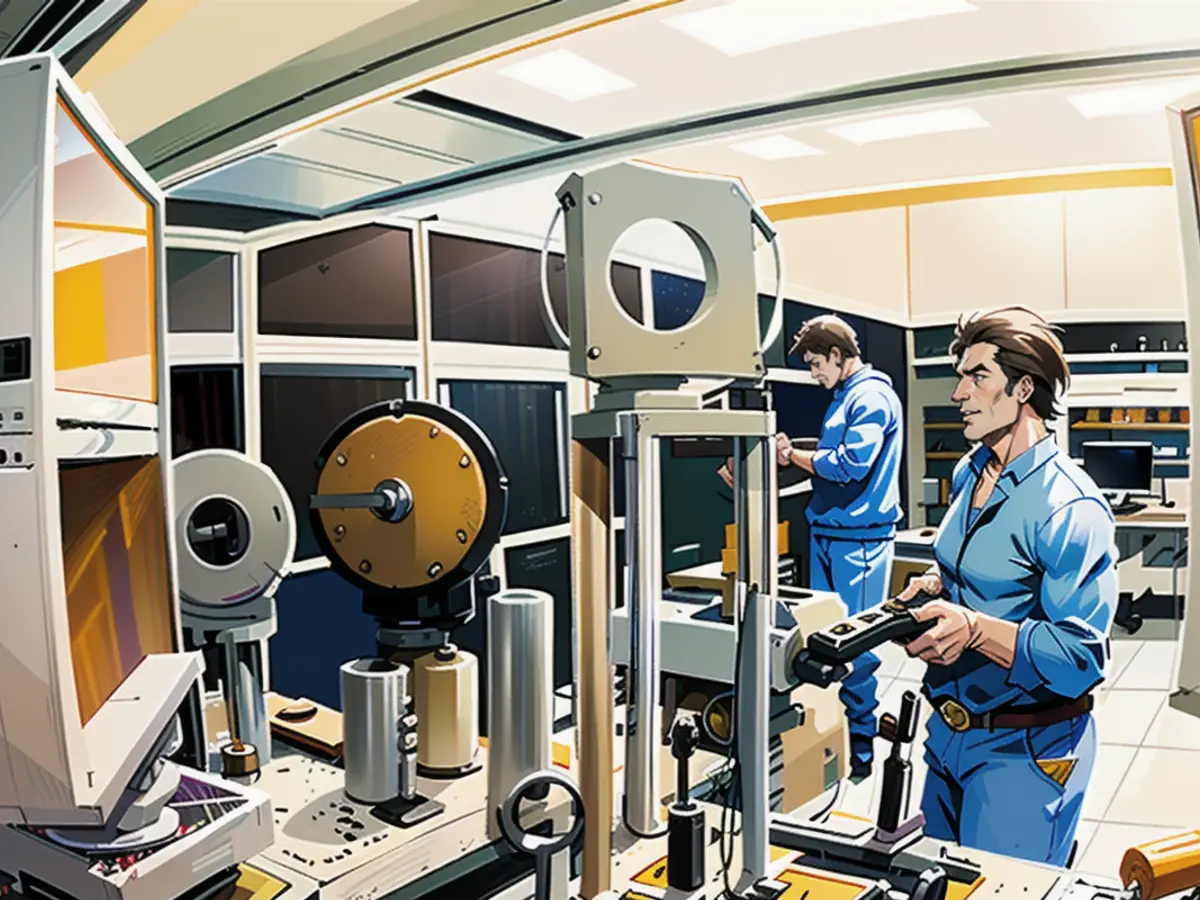Nerds are flourishing in the startup scene.
A crop of novel entrepreneurs is transforming the start-up industry: these are deep tech founders. What distinguishes them from their forebears, and what drives them? Tech writers Janna Linke and Hannah Schwär elucidate this in the latest episode of "Startup - Totally Honest" podcast on ntv.
Corporate collapses, layoffs, and a drying-up of funding: the German start-up scene has endured some challenging times. But current data indicate there may well be a silver lining - particularly for scientists. "Lots of young physicists, chemists, and materials scientists are currently embarking on entrepreneurial ventures to solve the big challenges," says tech reporter Hannah Schwär in the ntv podcast "Startup - Totally Honest."
Nearly every second dollar of venture capital was invested in so-called deep tech start-ups last year - disruptive, research-intensive technologies like AI, robotics, or nuclear fusion. Dealroom's data service indicates investments totaled approximately 20 billion dollars.
A shift in direction - it's noteworthy that German researchers have faced significant hurdles when establishing start-ups. They've lacked funds, courage, or role models in the past. But this was in the past. The success of the Mainz-based vaccine manufacturer Biontech, an academically-driven start-up, has made research-intensive start-ups irresistible to investors.
"Industry segments with hardcore research focusing on energy and climate are becoming increasingly pivotal," says "Capital" journalist Hannah Schwär. One reason for this upward trend: demand for alternative growth narratives. With the Ukrainian conflict ushering the end of the era of cheap money, and finance crises plaguing app and software companies, tech-driven inventions are promising resilient business models.
The trendsetters and economic strategists who've long defined the start-up landscape are starting to lose their appeal. The era of "me-too" founders to the '00s and the more sophisticated software-centric entrepreneurs of the '10s appears to be giving way to a fresh generation: the nerds - scientists, engineers, and physicists.
"The deep tech boom promises to radically alter the start-up scene," Schwär confirms. And that's not all: it could signal the beginning of a new chapter where technology companies emerge and maintain their position at the top for decades, approximating the might of the titans of Germany's first start-up era, Siemens, Bosch, and Daimler. World-class giants.
Linke conversed with Schwär. The dialogue has been shortened and edited for clarity. Listen to the full conversation on the ntv podcast "Startup - Totally Honest."
Read also:
- Lack of snow also opens up new opportunities for winter tourism
- Abrupt end to e-car subsidies
- The chemical industry has little confidence
- Intersport boss hopes for sales boom through sporting events
- Deep tech founders like those at Biontech, a successful academically-driven startup, are gaining traction in the investment world, attracting billions of dollars in venture capital for areas like artificial intelligence and nuclear fusion.
- Siemens and Bosch, historic German technology giants, might find their positions challenged as the deep tech boom favors research-intensive start-ups, promising resilient business models and the possibility of maintaining top positions for decades.
- The rise of deep tech start-ups is not only transforming the industry but also creating opportunities for partnerships between these companies and established technology groups like Bosch and Siemens, which can leverage each other's expertise in artificial intelligence, robotics, and other innovative fields.
- Robots, once considered the territory of science fiction, are now part of modern society, and companies are investing in AI and other technologies to create advanced manufacturing solutions in collaboration with start-ups, such as those working on nuclear fusion to generate sustainable energy.
Source: www.ntv.de








